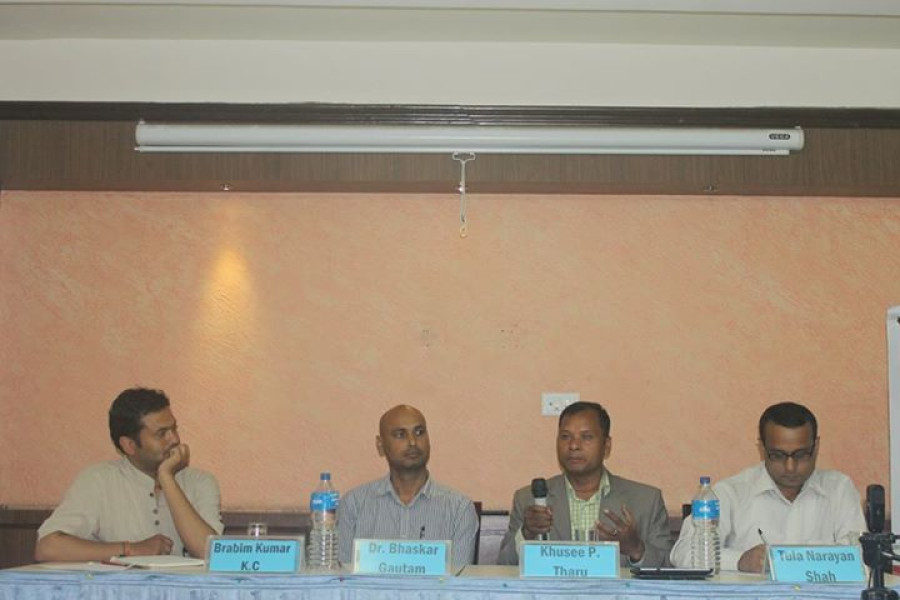Miscellaneous
Violence making Tarai movement weak: experts
Political analysts have said that the current struggle in Tarai against constitution drafting process is getting weak due to violence and lack of strategic leadership.
Post Reoprt
Political analysts have said that the current struggle in Tarai against constitution drafting process is getting weak due to violence and lack of strategic leadership.
“The movement is not organised,” said federalism expert Khusi Prasad Tharu. Executive director of Nepal Madhesh Foundation Tula Narayan Shah said, “Tharu aandolan has gone out of hands. Movement of the marginalised is always vocal, emotional and aggressive but it lacks organisation and strategy.”
The ongoing Tarai protests started a month back and more than two dozen protesters have died since. There have been incidents where agitators have attacked security forces leading to deaths of at least nine security personnel.
“Leaders of Tharuwan are in Kathmandu whereas youths have escaped to India. Madhesi Janadhikar Forum-Loktantrik chairman Bijaya Kumar Gachhadar and general secretary Ram Janam Chaudhary haven’t reached Tikapur,” Shah said. “The solution is purely political and should come from the Constituent Assembly but ethnic organisations are leading it.”
Tharu said that there is strength in the agenda of the Tharus but there is lack of leadership in areas west of Dang. He however believed that the movement has got support after MJF-L quit the Constitution Assembly.
Researcher at Martin Chautari Bhaskar Gautam said that the current movement must become political in nature if it is to get success. “It will get a proper leadership if it is made comprehensive and improvised upon,” he said.
In order to quell protests, army personnel have been deployed in several flashpoints, including Tikapur in Kailali and adjoining villages, where a tense standoff between Tharu and Pahade communities persists. The unrest has spread across the country in a month-from western Tarai, with a sizeable Tharu population, to eastern Tarai, with a big Madhesi population.
All three political analysts said that the violence in the movement is getting communal and believed a certain section is trying to keep it so. “Major parties have tried to give a communal angle to the protests to defame the movement. Communal disharmony is state propaganda,” according to Shah.
According to Tharu, the movement has already become communal and the constitution will have no meaning if it is brought disregarding the movement. Meanwhile, Gautam blamed certain “important” people in Kathmandu for trying to make the violence communal. “Communal tensions are only true in small pockets, it is not all over Tarai,” he said.
The experts also slammed the two-day window for talks with agitating forces set by the major parties in the CA. Shah said that there is no point in pausing constitution drafting process for two days if the big three parties are not willing to reconsider the contents of the 16-point agreement. “The leaders did not make this gesture out of goodwill but under pressure from the international community, civil society and media,” he blamed.
Gautam also echoed the analysis. “They are writing a constitution by imposing curfew in the country. Two days for talks is not enough,” he said.




 9.6°C Kathmandu
9.6°C Kathmandu










